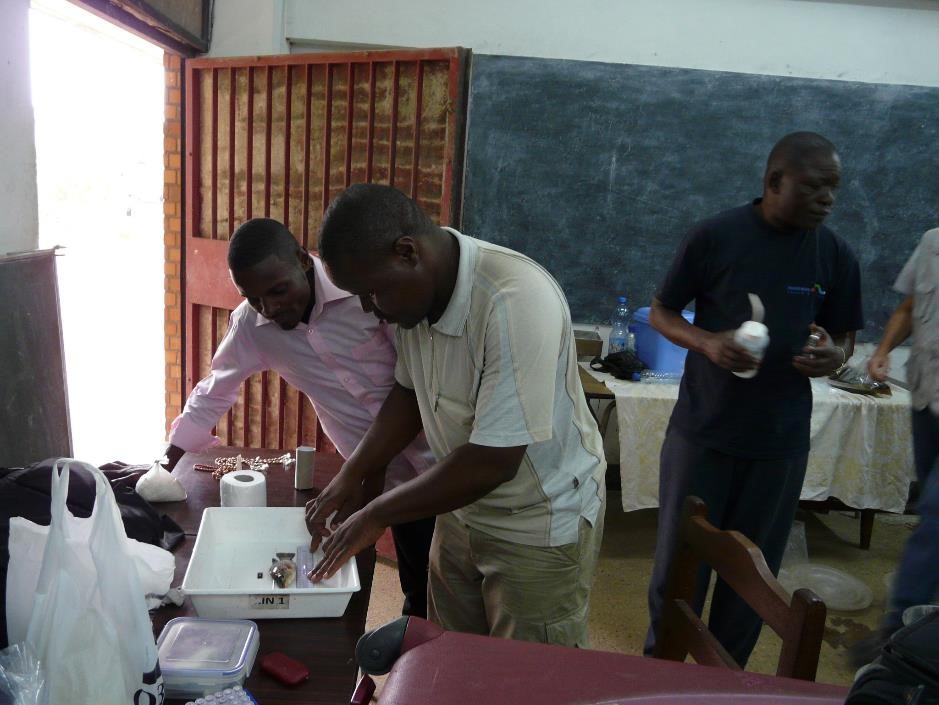 Workshop in ichtyoparasitology in Bas-Congo, DR Congo (closed)
Workshop in ichtyoparasitology in Bas-Congo, DR Congo (closed)
| Release date | 25/10/2017 |
|---|---|
| Contributor | mlsusini |
| Geographical coverage | DR Congo |
| Keywords | ichtyoparasitology |
- OCA type II (« projet de soutien ») project, DGD-RMCA framework agreement
- In this project, teaching/research staff of ISP Mbanza-Ngungu were trained in the sampling, isolation, preparation and identification of fish parasites, as an extension to fieldwork for the TILAPIA project (BRAIN-be pioneer project, BELSPO). Also staff from the Institut National pour l'Etude et la Recherche Agronomiques – Mvuazi and the Institut Supérieur d'études agronomiques – Mvuazi joined the workshop. During this training, the focus was on practical techniques for studying fishes and their parasites, including isolating, mounting and identifying a range of parasite taxa. The focus was on monogenean fish parasites (relatively few other parasites were found). Special attention was devoted to potential co-introduction of parasites with introduced Nile tilapia (in fish ponds and in the wild), and to protected areas. The workshop aimed at stimulating collaboration between ISP Mbanza-Ngungu and fish parasitology experts working in Central Africa, namely from the D.R.Congo (Centre de Recherche en Hydrobiologia–Uvira) and Cameroon (IRD & Université Yaoundé I). Contacts were also established with the Parc Marin des Mangroves, with the Jardin Botanique de Kisantu, etc. We also put in place the necessary basics to allow activities in fish parasitology on the medium term, e.g.: providing and installing basic infrastructure for ISP and initiating ISP staff into follow-up research activities, such as species-level identification of parasites.

- CEBioS co-coordinated and co-organised the workshop
- CEBioS responsible: Maarten Vanhove
- Project duration: June 18th – July 4th, 2015
- Total budget: € 10 000
- Partners: Royal Museum for Central Africa, Institut Supérieur Pédagogique de Mbanza-Ngungu, Centre de Recherche en Hydrobiologie – Uvira (DRC), Institut de Recherche pour le Développement (France/Cameroon)

 This site uses cookies in order to function as expected. By continuing, you are agreeing to our
This site uses cookies in order to function as expected. By continuing, you are agreeing to our 




